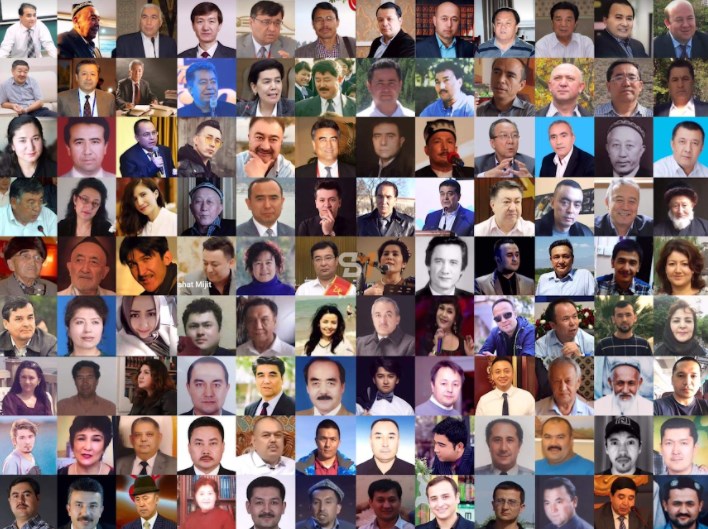A controversial statement by Bill Yee, one of Premier John Horgan’s advisers, has prompted the provincial government to acknowledge genocide is occurring against minority Muslims in Xinjiang, China.
However, the B.C. government continues to remain silent on its support for an economic agreement tied to those very same human rights violations, as alleged in the House of Commons.
The acknowledgment came this week, after Horgan received a joint letter from 13 prominent human rights activists in B.C. who advocate for democracy in Hong Kong and are calling for the dismissal of Yee, who recently disagreed with the genocide claims.
Yee, a retired B.C. provincial court judge and former Vancouver city councillor, is co-chair of Horgan’s Chinese-Canadian Community Advisory Committee. Yee spoke to Toronto A1 Radio on March 30 and dismissed the February 22 House of Commons vote declaring the Chinese government has been committing genocide against Uyghurs in Xinjiang.
“I think what they said about genocide and human rights in Xinjiang are being made up. We all know that these politicians don’t even know where Xinjiang is; that is why the so-called genocide is not according to facts,” said Yee.
Yee has been accused by the activists of “parroting lines that echo those of Beijing authorities,” such as the Uyghur population increasing by millions. He also cited trade opportunities with China and opposed recent sanctions against Chinese during the interview.
Yee is also known for favouring Beijing’s explanation of the 1989 Tiananmen Square massacre and opposing a Goddess of Democracy statue at the University of B.C. to commemorate the deaths of student protesters, said activist Mabel Tung.
Yee is the past president of the Chinese Benevolent Association, which is also known to take political positions siding with the Chinese Communist Party (CCP). Most recently it placed media ads to defend Hong Kong’s Beijing-imposed national security law.
“We have not heard Mr. Yee demanding the release of the two Michaels (Michael Kovrig and Michael Spavor), but he is among those praising the notorious National Security Law imposed by China on Hong Kong since July 2020,” stated the letter.
The premier’s office issued a statement in response to Yee’s political statements: “Mr. Bill Yee was expressing personal opinions which do not represent the positions of the Advisory Committee. The Government of British Columbia supports the federal government’s position on these important matters. The mandate of the Advisory Committee was set up to provide inputs to the government on domestic community issues and does not include foreign affairs. Therefore, Mr. Bill Yee has been asked to not identify himself as a member of the Advisory Committee when expressing personal opinions.”
However, the statement contradicts a 2018 press release on the committee stating: “The committee will recommend strategies for building on B.C.’s economic and cultural connections with China and Chinese communities throughout the world.”
As such, it raises questions as to what advice the B.C. government is getting from this committee and how the committee was formed in the first place, the letter asserts.
Furthermore, the provincial government’s support for the federal government’s position on the Uyghur genocide seems to contradict its continued support for a memorandum of understanding (MOU) on China’s Belt and Road Initiative (BRI).
That’s because what is alleged to be happening in Xinjiang is due, in part, to China’s desire to expand its economic power in the region.
The House of Commons Special Committee on Canada-China Relations outlined part of the motives behind the alleged genocide, in a subcommittee report on Xinjiang, last year.
“Xinjiang is a resource-rich area with important oil deposits. It also borders several Central Asian countries that the Government of China considers strategically important for its Belt and Road Initiative and its pursuit of expansionism.
“Because some Uyghurs desire more autonomy or independence from China, the Government of China considers them a threat to its economic development and prosperity. The Subcommittee was informed that its solution is the elimination of Uyghurs and other Turkic Muslims in the region,” the subcommittee stated in its final report on October 21, 2020.
The BRI is China’s blueprint for foreign economic and cultural expansion. Critics aligned with the United States charge it is a so-called “debt trap” for developing nations. Allies of China see BRI projects as symbiotic economic agreements.
Horgan’s office has declined multiple attempts by Glacier Media, including this week, to understand the government’s position on the MOU, which was initially signed in May 2016 by then-BC Liberal Premier Christy Clark and her international trade minister Teresa Wat.
“Mr. Yee is entitled to his personal views. However, when he is holding the key advisory position to the premier, media look to him for ‘expert’ analysis and comments. His ‘personal views’ get an official platform,” stated the letter, which asks for Yee’s removal from the committee.
Horgan’s chief of staff Geoff Meggs organized the committee in 2018. Meggs is a former Vancouver city councillor who raised China’s flag at city hall alongside China’s consul general and people associated with the CCP’s propaganda wing, the United Front Work Department.
Letter signatory Fenella Sung said Meggs is “pulling the strings” and the NDP has maintained the BC Liberal position on China.
“In terms of dealing with the CCP, unfortunately, and so far, they are already in the second term, and we still don't see any much different from the Liberals’ 16 years of record, when they were cozying up to the CCP,” said Sung.
Yee did not respond to a Glacier Media request for comment via the government and the Chinese-Canadian Museum, to which he is a director.



